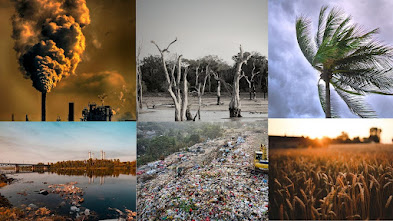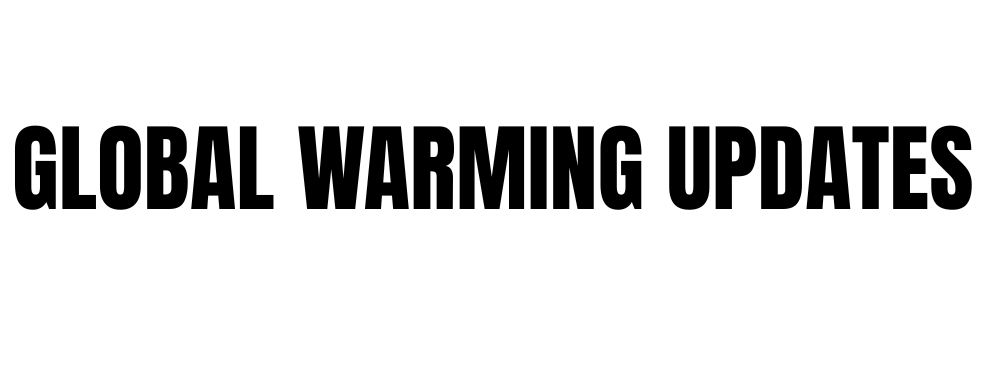
Fossil fuels (coal, oil, and gas) are the largest contributors to global climate change, accounting for more than 75 percent of global greenhouse gas emissions and nearly 90 percent of all carbon dioxide emissions.
When greenhouse gas emissions blanket the Earth, the sun’s heat is trapped. Effects Of climate change.
The world is currently warming at the fastest pace in recorded history. As temperatures rise over time, weather patterns change and nature’s normal balance is disrupted. This poses many risks to humans and all other life forms
Effects Of Climate Change In The World Wide Economy
As greenhouse gas concentrations increase, the Earth’s surface temperature also increases. The last decade (2011-2020) was the warmest period on record. Every decade since the 1980s has been warmer than the previous
Almost all regions experienced many hot days and heat waves. Rising temperatures can increase heat stress and make outdoor activities more difficult. Wildfires tend to start and spread faster when the weather is warm. Arctic temperatures are warming at least twice as much as the global average.
Chapter There is a storm one
Storm damage has become more severe and frequent in many areas. As temperatures rise, more water evaporates, causing heavier rainfall, floods, and more storms. The frequency and extent of storms are also affected by ocean temperatures. Hurricanes, tornadoes and typhoons are fed by the warm waters of the ocean surface.These storms often destroy homes and communities, causing death and destruction.
Drought intensifies one
Climate change is changing water availability, causing water scarcity in many regions. Global warming causes water scarcity in regions that already have too much water, increases the risk of agricultural droughts affecting crops, and ecological droughts lead to the degradation of ecosystems. Drought can also wreak havoc on dust storms that send millions of tonnes of sand into countries. The desert is expanding and the land where food grows is growing. Many people are now in danger of not having enough water.
Rising warm oceans one
Oceans absorb much of Earth’s warming air. Ocean warming has accelerated at all ocean depths over the past two decades. As the ocean warms, its volume increases because water expands when the temperature increases. Melting glaciers also cause sea levels to rise, threatening beaches and islands. Additionally, the ocean absorbs carbon dioxide and does not release it into the atmosphere..
But more carbon dioxide makes the ocean more acidic, endangering marine life and coral reefs.
items lost one
Climate change poses a risk to the survival of land and marine animals. These risks also increase as temperatures rise. Climate change is causing the number of species on Earth to disappear 1,000 times faster than at any time in human history. It is stated that one million species are in danger of extinction in the next few years. Wildfires, extreme weather, pests and diseases are among the many threats associated with climate change. Some species can migrate and survive, but some may not.
Article Food shortage one
Climate change and increasing extreme weather conditions are the cause of hunger and malnutrition worldwide. Fisheries, crops and livestock will disappear or productivity will decrease. As oceans become acidic, marine resources that feed millions of people are at risk. In many Arctic regions, changes in sea ice have affected animal nutrition, hunting and fishing. Heat stress reduces water and grass availability for grazing, causes crop yields to decrease and affects livestock.
Health hazard one
Climate extrade is the finest hazard to human health Climate change has already had negative impacts on health, including air pollution, diseases, extreme weather conditions, forced migration, psychological stress and increased hunger in areas where people cannot grow or have enough food. Environmental accidents cost the lives of approximately 13 million people every year. Changing weather conditions spread diseases, extreme weather events cause deaths and make it harder to maintain health systems.
Poverty and displacement one
Climate change has an impact on people entering and moving out of poverty. Floods can sweep through urban slums, destroying homes and livelihoods. Heat can make outdoor activities difficult. Lack of water will affect crops. Over the last decade (2010-2019), an estimated 23.1 million people have been displaced each year due to climate-related events, pushing many people into poverty. Most refugees come from countries that are most vulnerable and least prepared to adapt to the effects of climate change. one Chapter





